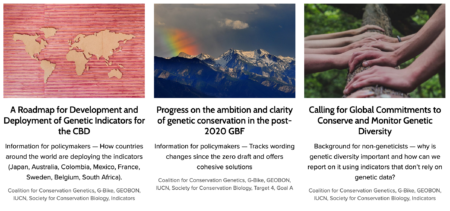Well, who isn’t right? Anyway, point is, the Coalition for Conservation Genetics has you covered with a dedicated website of resources in support of the CBD’s COP15. Extremely useful.

Agricultural Biodiversity Weblog
Agrobiodiversity is crops, livestock, foodways, microbes, pollinators, wild relatives …
Well, who isn’t right? Anyway, point is, the Coalition for Conservation Genetics has you covered with a dedicated website of resources in support of the CBD’s COP15. Extremely useful.

Last week’s The Economist has a nice piece in its Graphic Detail section on how climate change is affecting yields of some crops so much that farmers in many parts of the world will be increasingly tempted — if not compelled — to switch to different crops.
Even if more climate-resilient varieties of the crops farmers are currently growing come on-line, along with better agronomic practices, it may in some cases just be easier and more profitable to grow something else, says the article.
Like breadfruit, it adds, cheekily. Before concluding, rather more constructively, that, given the uncertainties involved, farmers should “learn about a wide variety of crops.”
I’d have liked to share a chart or two here, but the licensing paywall is steep, so I’ll just point to the four studies that the article references. Unlike The Economist, though, I’ll actually give the full titles, and link to the papers — Brainfood-style.
LATER: Actually, let me add another one to the list, not in the piece in The Economist but also relevant, and complemented by a useful Q&A with one of the authors.
Readers may remember a recent Nibble on a report by some Big Ag head honchos saying that we’re destroying the planet and we should, you know, stop. That was met mainly by shouts of “who’s this we?” and variations thereof.
Well, so now there’s a another report by what seems to be a different set of Big Ag head honchos, but the response is predictably similar.
All grist to the COP27 mill, I guess, where for once agriculture is front and center.
You see what I did there?